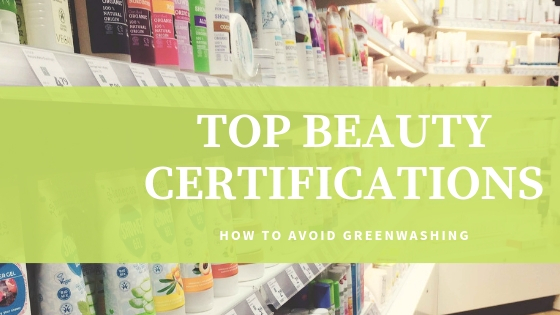Greenwashing is an enemy for consumers. It’s an unethical marketing strategy that misleads consumers claiming that products are eco-friendly and natural when they aren’t. A way to avoid greenwashing could be to buy beauty products with certifications. Beauty certifications are a way for brands to demonstrate the naturalness of their products and to increase loyalty in consumers. However, they are not mandatory and it is up to a brand to apply for one of them or not. It is worth to highlight that the application procedure is not easy and requires time and money. At the same time, it is also possible that certifications could discriminate a brand selling natural beauty products only because it did not apply for them yet or it’s waiting for the award. Certifications can help you choosing cosmetic products but it is better to read the INCI (basically the ingredients) on the backside.
affiliate disclosure: this post contains affiliate links about products that I tried and recommend.
Which are the most important beauty certifications to avoid greenwashing?
There are a lot of certification bodies in the world and each of them with specific requirements. Ecolabindex.com lists 66 labels for cosmetics and personal care products. Here, I will describe just a few of them – NATRUE, ECOCERT, COSMOS – that we daily find at the supermarket or at bio-shops.
1. NATRUE

NATRUE (Natrue Standard) is a non-profit association founded in 2007 that aims to promote products with high standard of naturalness. A certified NATRUE product must be free from synthetic ingredients (dyes, fragrances, preservatives), genetically modified ingredients and nano-particles. Furthermore, the brand can be certified by NATRUE if at least the 75% of the products respect the NATRUE Standard.
NATRUE classifies products according to three certification levels such as:
- natural cosmetics: the ingredients are 100% natural, but not necessarily organic
- natural cosmetics with organic portion: at least 70% of natural ingredients must come from organic production
- organic cosmetics: at least 95% of natural ingredients must come from organic production
Some products that are NATRUE certified and that I recommend are i.e. Weleda, Sante and Dr. Hauschka.
2. ECOCERT

ECOCERT (Ecocert standards) is a certification body established in France in 1991. It was founded to protect and support the organic farming becoming a benchmark in organic certification worldwide.
There are two different ECOCERT labels that set the following standards:
- natural cosmetics: at least 50% of the ingredients must come from organic farming
- natural organic cosmetics: at least 95% of the ingredients must come from organic farming
Among ECOCERT products I recommend the products from Cattier. I used Cattier Shea Butter 100% organic and a face mask. Cattier Shea Butter 100% organic is perfect for body moisturising butter and for DIY beauty products. Another brand that has this certification is Madara.
Take a look at the skincare products I use because they are difficult to make at home. A few products to get clean, glowing skin perfect for those who like Skinimalism.
3.COSMOS
COSMOS (COSMetic Organic Standard) has been created by a non-profit association whose founders are BDIH (Germany), Cosmebio and ECOCERT Greenlife SAS (France), ICEA (Italy) and Soil Association (Great Britain) more technical info here. This certification was created with the aim to be internationally recognised addressing consumers towards the conscious purchase of natural and organic products.
Its standards are classified in two certification levels:
- COSMOS organic at least 95% of the physically processed agro-ingredients must be organic and at least 20% of the total product must be organic
- COSMOS natural refers to those products that could not reach the COSMOS organic criteria, i.e. scrub and masks that contain high amount of water and inorganic ingredients.
An example of COSMOS certified products that I found are from Nudus as Lipstick Euphoria or Kora Organics.
Those are my top 3 picks when it’s about buying natural products. It is not a comprehensive list but should give you a good starting point to get familiar with Beauty certifications. Do you rely on any other certification when buying natural products? If yes, which one? Leave a comment below 🙂


Thanks for the heads up! I’ve been buying beauty products that they say are using natural products but I now I can actually check if this should be okay.
You are welcome! I’m really happy to read your comment. My aim is to be somehow useful for my readers 🙂
This post is so well written and well structured. The deception in the beauty industry is scary so thanks for the tips and clearing this up! Brilliant post! ✊🏻
Thanks! Happy to read it! Your comment motivates me to continue writing 🙂
This is such a good thing to refer to and know. I have been in a journey with becoming more conscious of my purchases. It can be overwhelming trying to find what the best options are.
This is such an important post. So many companies are manipulating the public perspective in their own favour and it’s ridiculous.
Britt | http://alternativelyspeaking.ca
I am really ɡratеful tto tһe holder of this website who has shared this enormous paragraph at att this place.